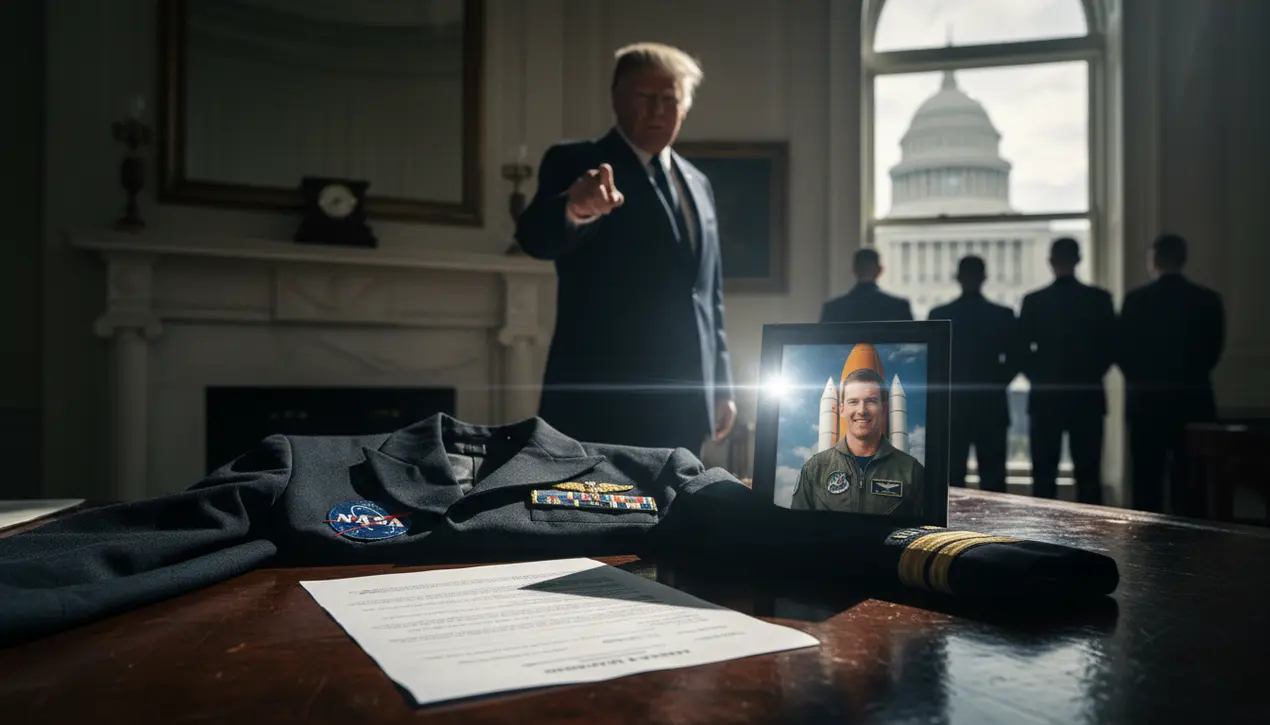
Politicscourts & investigationsPolitical Trials
Trump accuses former astronaut Mark Kelly of treason.
RO
Robert Hayes
2 hours ago7 min read
The political landscape was jolted last week when former President Donald Trump launched a volley of incendiary accusations against Senator Mark Kelly, a retired Navy captain and former NASA astronaut, branding his conduct as 'seditious behavior by traitors' and darkly alluding to the potential for capital punishment. The catalyst for this extraordinary outburst was a video, produced in collaboration with five other Democratic officials possessing national security credentials, in which Kelly reminded members of the armed forces of their long-standing right and duty to refuse unlawful orders.This foundational principle of military law, a bedrock of the Uniform Code of Military Justice designed to prevent atrocities, was framed by the White House as an act of treason. Secretary of Defense Pete Hegseth subsequently escalated the confrontation, announcing a Pentagon investigation into Kelly, threatening to recall the senator to active duty for prosecution under military jurisdiction—a move without precedent in modern American history.On its surface, this sequence of events presents a chilling tableau of authoritarian ambition, echoing the tactics of strongmen who seek to subjugate independent legislatures. However, a deeper analysis reveals a more complex narrative, one not only of ambition but of profound institutional weakness and operational incompetence.The Trump administration's desire to weaponize the legal system against its critics is undeniable, yet its capacity to do so effectively has been consistently hamstrung by the very system it seeks to dominate. This pattern is not isolated to the Kelly affair; it is part of a broader, almost farcical, record of legal failure.Just this Monday, a federal judge dismissed high-profile indictments against former FBI Director James Comey and New York Attorney General Letitia James, ruling that the prosecuting attorney herself was appointed illegally. This follows the acquittal of 'Sandwich Guy' Charles Dunn and a summer of failed grand jury indictments against anti-ICE protesters, an astonishing track record given the historical tendency of grand juries to indict nearly anyone a prosecutor targets.The case against Kelly appears particularly flimsy upon legal examination. Experts in military law have universally panned the investigation as 'preposterous,' citing two insurmountable constitutional hurdles.First, Kelly is a retired officer, and no such prosecution for speech made after retirement has ever been attempted, raising serious questions about the Pentagon's jurisdiction. Second, and more formidable, is the Constitution's Speech and Debate Clause, which provides sweeping immunity to members of Congress for statements made in the course of their legislative duties.For Hegseth to succeed, he would need to find a military prosecutor willing to argue that a senator's accurate recitation of black-letter law constitutes a crime serious enough to override this foundational constitutional protection—a legal fantasy. This recurring incompetence is symptomatic of a deeper challenge for any leader attempting a hostile takeover of an established legal order.Unlike Turkey's Recep Tayyip Erdogan, who has spent decades methodically placing loyalists within the judiciary, Trump's approach has been haphazard, prioritizing raw loyalty over professional competence. The result is an administration that talks like a dictator but consistently fails to rule like one, its ambitions crashing against the sturdy, if imperfect, bulwarks of procedural law, independent judges, and the simple requirement for a coherent legal argument. The threat to democratic norms is real and alarming, but for now, the system's inherent checks, amplified by the administration's own bungling, are proving to be a more resilient defense than perhaps even their designers had hoped.
#Trump
#Mark Kelly
#military tribunal
#sedition
#authoritarianism
#free speech
#featured
Stay Informed. Act Smarter.
Get weekly highlights, major headlines, and expert insights — then put your knowledge to work in our live prediction markets.
Related News
Comments
Loading comments...
© 2025 Outpoll Service LTD. All rights reserved.